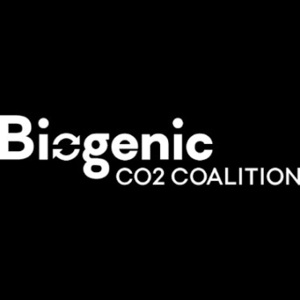Biogenic CO2 Coalition files petition for rulemaking with EPA

September 10, 2020
BY Biogenic CO2 Coalition
The Biogenic CO2 Coalition today filed a petition for rulemaking with the U.S. EPA, providing a detailed explanation of the scientific and legal basis for the agency to propose a rule to recognize that biogenic carbon emissions from agricultural crops do not contribute to elevated greenhouse gas levels in the atmosphere. The filing also details the significant economic benefits of the proposal.
Regulatory clarity regarding the de minimis nature of biogenic carbon emissions from agricultural crops promises to spur investments in rural economies, drive the creation of green jobs, and enable American farmers and businesses to fairly compete in the international marketplace for renewable products.
“Sound science from around the world makes clear that carbon emissions from fossil fuels and agricultural crops should be treated differently. This petition provides EPA a simple blueprint for revising the regulations to reflect that reality,” said John Bode, president and CEO of the Corn Refiners Association. “More importantly, this rule change will help rural economies thrive by stimulating investment, creating green jobs, and encouraging growth in renewable products. This fast-growing sector not only supports American farmers, it creates products that are better for our planet.”
The petition states:
When biogenic feedstocks are processed at stationary sources, carbon dioxide emitted from the feedstocks are offset completely by the carbon dioxide that the feedstocks absorbed during photosynthesis … There is a broad scientific consensus that, because of photosynthesis, emissions from processing agricultural crops are carbon neutral or de minimis… Yet, in the PSD and Title V programs, EPA currently treats biogenic emissions the same as emissions from fossil fuels. The Biogenic CO2 coalition therefore respectfully requests that EPA bring its PSD and Title V regulations in line with scientific evidence and the prevailing regulatory treatment of biogenic emissions by exempting carbon dioxide emissions from agricultural crops.
Advertisement
The filing includes scientific evidence to support the regulatory change, including a survey of 108 peer-reviewed journal articles concerning biogenic CO2 emissions from annual agriculture crops. One hundred four of the articles found show biogenic CO2 emissions from agriculture crops “are completely balanced by biomass regrowth over a short period of time.” The filing also reviews how other significant jurisdictions and other U.S. regulatory bodies treat biogenic CO2 emissions and discusses the economic benefits of the requested rule change.
“As the bioeconomy grows, it will create new and sustainable markets for family farmers – something that is crucially important right now while the agricultural sector recovers from the pandemic, trade wars, and low crop prices,” said Rob Larew, president, National Farmers Union. “Unfortunately, misguided regulatory hurdles are hindering the success of this vital sector. We hope that EPA will remove these hurdles and open the door for additional financial opportunities and jobs in rural communities.”
"Many countries around the world include agricultural crops in their energy bioeconomy. It makes sense,” said Rock Trojan, president, Hemp Industries Association. “It's time for the EPA to recognize the economic, environmental and energy value of agricultural crops. Now more than ever, American farmers need access to the bioeconomy to bring more revenue home to the farm."
In alignment with the aforementioned scientific review, a group of 21 leading scientists recently wrote a letter to the EPA asserting that is it imperative the Agency act swiftly to adopt a rule that recognizes the de minimis character of emissions from annual crops.
Members of Congress also agree the EPA needs to provide regulatory clarity for annual farm crops. Reps. Rodney Davis, R-Ill.; Collin Peterson, D-Minn.; Dave Loebsack, D-Iowa; and Roger Marshall, R-Kan., recently sent a letter to EPA Administrator Andrew Wheeler requesting regulatory clarity for annual farm crops.
Advertisement
Last year, a bipartisan group of 18 Senators also pressed the EPA for swift action on this issue in a letter. A group of five Governors have also urged the agency for action on the same issue.
The Biogenic CO2 Coalition also recently announced a new video and digital ad campaign urging EPA to unleash the U.S. bioeconomy and rural industries by recognizing the de minimis character of carbon emissions from common agricultural crops.
To read the full petition for rulemaking, click here: https://bit.ly/3hh3XMy
Related Stories
The USDA on April 14 announced the cancellation of its Partnerships for Climate-Smart Commodities program. Select projects that meet certain requirements may continue under a new Advancing Markets for Producers initiative.
The governors of Iowa, Nebraska, South Dakota and Missouri on April 10 sent a letter to U.S. EPA Administrator Lee Zeldin urging the agency to set higher Renewable Fuel Standard renewable volume obligations (RVOs).
President Donald Trump on April 8 issued an executive order that aims to protect oil, natural gas, coal, hydropower, geothermal, biofuel, critical mineral, and nuclear energy resources from state overreach.
Growth Energy, Clean Fuels respond to oil industry in case pushing EPA to reallocate lost biofuel gallons
Growth Energy and Clean Fuels Alliance America on April 14 filed a reply brief in a case challenging the U.S. EPA for its failure to reallocate gallons lost due to SREs granted after RVOs have been issued under the Renewable Fuel Standard.
The USDA reduced its outlook for 2024-’25 soybean oil use in biofuel production in its latest World Agricultural Supply and Demand Estimates report, released April 10. The outlook for soybean oil pricing was revised up.
Upcoming Events










